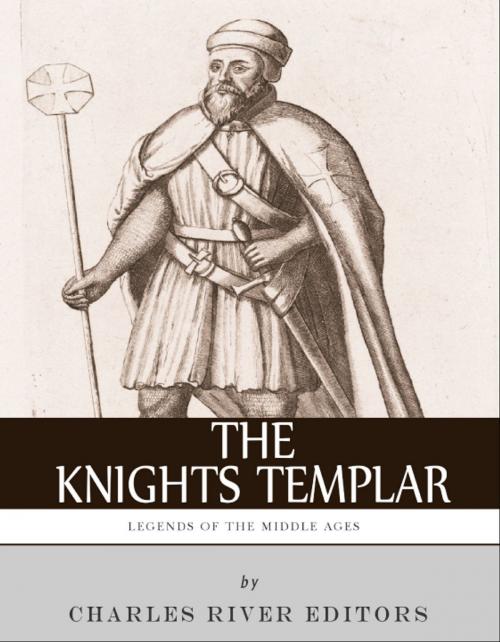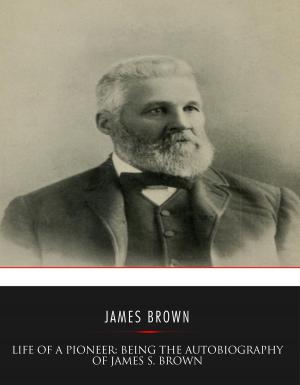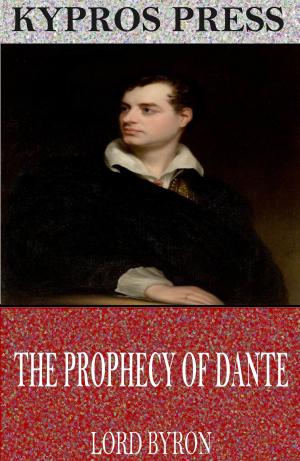Legends of the Middle Ages: The History and Legacy of the Knights Templar
Nonfiction, Religion & Spirituality, Christianity, Church, Church History, History, Medieval| Author: | Charles River Editors | ISBN: | 9781475319651 |
| Publisher: | Charles River Editors | Publication: | November 20, 2012 |
| Imprint: | Language: | English |
| Author: | Charles River Editors |
| ISBN: | 9781475319651 |
| Publisher: | Charles River Editors |
| Publication: | November 20, 2012 |
| Imprint: | |
| Language: | English |
*Explains the myths and legends of the Knights Templar, and their origins.*Includes pictures of important people, places, and events in the history of the Knights Templar.*Includes a Bibliography for further reading.*Includes a Table of Contents. A lot of ink has been spilled covering the lives of historys most influential figures, but how much of the forest is lost for the trees? In Charles River Editors Legends of the Middle Ages series, readers can get caught up to speed on the lives of the most important medieval men and women in the time it takes to finish a commute, while learning interesting facts long forgotten or never known. The Order of the Temple of Solomon, also known as the Templars or the Knights Templar, is one of the best-known and least-understood groups in history. They appear prominently in everything from novels (The Da Vinci Code) to films (as the Knights of the Cruciform Sword in Indiana Jones and the Last Crusade) to videogames (Assassin's Creed). In these stories, they are a sinister cult that manipulated historical events since the Middle Ages, via intimidation and assassination. They are usually connected to the Freemasons and, sometimes, to other historical cults like the Hindu Thuggees.The real Templars were both more mundane and more fascinating than the myths and legends. They were the first military religious order monks who were also knights. The founding members were veterans of the First Crusade in Palestine and their main goal was, in fact, benign. They formed their group as a small tertiary order (Lay people who took monastic vows, but lived in the larger community) in Jerusalem, policing the pilgrim routes and shrines of the Levant and protecting travelers from the many bandits that infested the area. Even though they were used as the core of Crusader armies during the later crusades, the Templars never wavered from their original goal. The Templars were split into knights (about ten percent of the Order), sergeants and chaplains (the other ninety percent), with the non-noble sergeants comprising the majority of the Order, according to historians like Malcolm Barber in his history of the Order, The New Knighthood. The knights fought in the main part of the Templar army, but the sergeants appear to have backed up the knights in battle, both as horsemen and as a small infantry. The sergeants also worked as servants and in non-military support functions on the Templar farms (granges) that supported the Order. The chaplains were a small group of priests who were rotated into the Order on a temporary basis and served the monks' religious needs.Like other secretive groups, the mystery surrounding the Templars has helped their legacy endure. While some conspiracy theorists attempt to tie the group to other alleged secret socities like the Illuminati, other groups have tried to assert connections with the Templars to bolster their own credentials. Who they were and what they had in their possession continue to be a source of great intrigue even among non-historical circles. Legends of the Middle Ages: The History and Legacy of the Knights Templar chronicles the history of the order and examines the secrecy and mystery surrounding the group, as well as the legacy that has endured today. Along with pictures of important people, places, and events, you will learn about the Knights Templar like you never have before, in no time at all.
*Explains the myths and legends of the Knights Templar, and their origins.*Includes pictures of important people, places, and events in the history of the Knights Templar.*Includes a Bibliography for further reading.*Includes a Table of Contents. A lot of ink has been spilled covering the lives of historys most influential figures, but how much of the forest is lost for the trees? In Charles River Editors Legends of the Middle Ages series, readers can get caught up to speed on the lives of the most important medieval men and women in the time it takes to finish a commute, while learning interesting facts long forgotten or never known. The Order of the Temple of Solomon, also known as the Templars or the Knights Templar, is one of the best-known and least-understood groups in history. They appear prominently in everything from novels (The Da Vinci Code) to films (as the Knights of the Cruciform Sword in Indiana Jones and the Last Crusade) to videogames (Assassin's Creed). In these stories, they are a sinister cult that manipulated historical events since the Middle Ages, via intimidation and assassination. They are usually connected to the Freemasons and, sometimes, to other historical cults like the Hindu Thuggees.The real Templars were both more mundane and more fascinating than the myths and legends. They were the first military religious order monks who were also knights. The founding members were veterans of the First Crusade in Palestine and their main goal was, in fact, benign. They formed their group as a small tertiary order (Lay people who took monastic vows, but lived in the larger community) in Jerusalem, policing the pilgrim routes and shrines of the Levant and protecting travelers from the many bandits that infested the area. Even though they were used as the core of Crusader armies during the later crusades, the Templars never wavered from their original goal. The Templars were split into knights (about ten percent of the Order), sergeants and chaplains (the other ninety percent), with the non-noble sergeants comprising the majority of the Order, according to historians like Malcolm Barber in his history of the Order, The New Knighthood. The knights fought in the main part of the Templar army, but the sergeants appear to have backed up the knights in battle, both as horsemen and as a small infantry. The sergeants also worked as servants and in non-military support functions on the Templar farms (granges) that supported the Order. The chaplains were a small group of priests who were rotated into the Order on a temporary basis and served the monks' religious needs.Like other secretive groups, the mystery surrounding the Templars has helped their legacy endure. While some conspiracy theorists attempt to tie the group to other alleged secret socities like the Illuminati, other groups have tried to assert connections with the Templars to bolster their own credentials. Who they were and what they had in their possession continue to be a source of great intrigue even among non-historical circles. Legends of the Middle Ages: The History and Legacy of the Knights Templar chronicles the history of the order and examines the secrecy and mystery surrounding the group, as well as the legacy that has endured today. Along with pictures of important people, places, and events, you will learn about the Knights Templar like you never have before, in no time at all.















